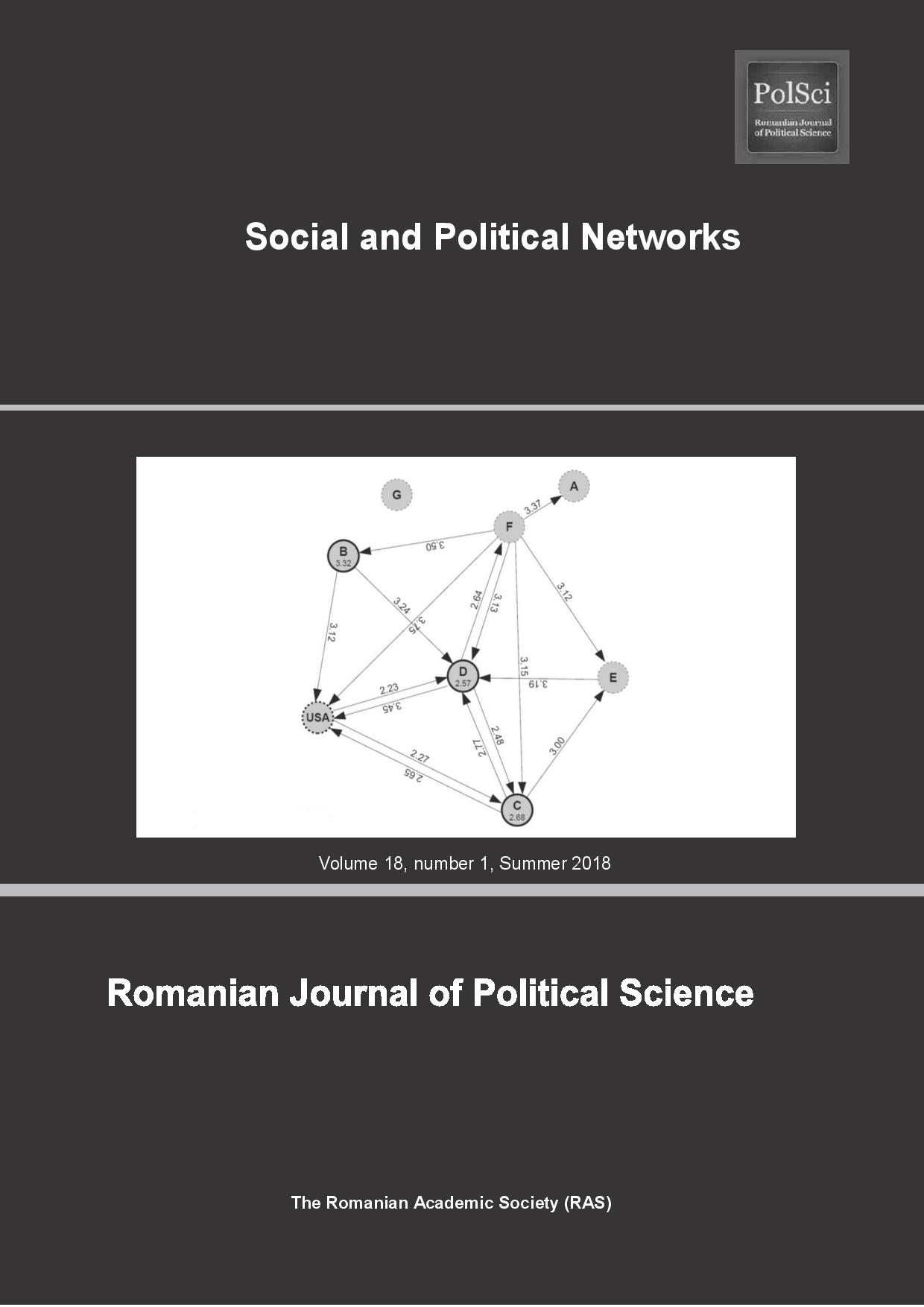EXPLORING PARTY SWITCHING IN THE POST-1989 ROMANIAN POLITICIANS NETWORK FROM A COMPLEX NETWORK PERSPECTIVE
EXPLORING PARTY SWITCHING IN THE POST-1989 ROMANIAN POLITICIANS NETWORK FROM A COMPLEX NETWORK PERSPECTIVE
Author(s): Silvia I. Fierăscu, Mihai Pârvu, Alexandru Topîrceanu, Mihai UdrescuSubject(s): Politics / Political Sciences, Economy, Political Sciences, Governance, Government/Political systems, Electoral systems
Published by: Societatea Academică Română (SAR)
Keywords: MPs; network science; party switchers; political networks; political parties; Romania;
Summary/Abstract: The new science of complex networks provides computational tools that are effective at analyzing big data sets from a wide array of scientific fields, ranging from medicine to engineering, technology, and social networks. Here, we explore the party co-affiliation networks of Romanian politicians who were in Parliament after the regime change in 1989, while focusing on individual party switchers. As such, we propose a set of three novel measures to understand the context of party switching, at both micro level (individual MPs’ career choices), as well as macro level (the party performance of the receiving political organizations). We thus build a network in which nodes represent individual politicians, while links represent shared membership within the same political party over the same electoral cycle. We combine these insights with a centrality analysis of influential switchers during the period of 1990 to 2018. By applying the PageRank centrality in our network of Romanian politicians, we make explicit the link between heterogeneity of strategic party switching choices at the individual MP level and homogeneity and political fragmentation at the party level, as party switchers fill in structural holes in a multi-party system. Although the act of party switching is controversial at individual MP (micro) level, the dynamic movement of individual MPs across the political spectrum of parties appears to have unexpected consequences at the party system (macro) level. Our analysis has implications for party politics and the study of party systems, as well as for MPs’ career development opportunities.
Journal: Romanian Journal of Political Sciences
- Issue Year: 18/2018
- Issue No: 1
- Page Range: 108-136
- Page Count: 29
- Language: English
- Content File-PDF

